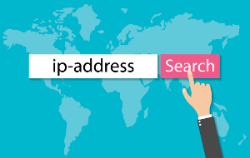While it’s not getting making big headlines in the mainstream media, US courts are still loaded with BitTorrent related lawsuits.
The cases are filed by a small group of copyright holders. To state their claim, these companies generally rely on IP-addresses as evidence.
These IP-address details are collected from BitTorrent swarms and linked to a geographical location using geolocation tools. With this information in hand, rightsholders ask the courts to grant a subpoena, forcing Internet providers to hand over the personal details of the associated account holder.
This process isn’t new and the same tactics have been used for years. While some federal judges have raised doubts about the accuracy and sufficiency of IP-address evidence, many others let the cases continue.
In recent weeks, however, more and more judges have begun to ask questions.
This started after the Ninth Circuit Court of Appeals reached a verdict in Cobbler Nevada v. Gonzales. The Court ruled that identifying the registered subscriber of an IP-address by itself is not enough to argue that this person is also the infringer.
“Because multiple devices and individuals may be able to connect via an IP address, simply identifying the IP subscriber solves only part of the puzzle. A plaintiff must allege something more to create a reasonable inference that a subscriber is also an infringer,” the verdict read.
What this “something more” should be was not clarified, but the order didn’t go unnoticed. In recent weeks several district courts have cited the ruling, requesting copyright holders to come up with “something more” as well.
Just last week, US District Judge Sara Ellis dismissed a complaint Malibu Media had filed for this very reason.
“This Court agrees with the Ninth Circuit and those courts that have found that a plaintiff must allege more than simply the registration of an IP address to an individual in order to proceed against that individual for copyright infringement,” Judge Ellis wrote.
Malibu Media, one of the most prolific filers of BitTorrent lawsuits, was given the opportunity to amend the complaint with new details, but those will have to tie the defendant to the alleged infringement.
The company had already amended the complaint previously, showing that the IP address was the source of a persistent pattern of copyright infringement. That, however, was not enough.
In Nevada, US Magistrate Judge Nancy Koppe also highlighted the Gonzales ruling. A request for a subpoena by Strike 3 Holdings was denied because an IP-address alone is not enough.
“In the context of BitTorrent copyright infringement, the Ninth Circuit has recently held that a plaintiff bears the burden of pleading factual allegations that create a reasonable inference that the defendant is the infringer.
“Hence, a complaint that traces infringement to a particular IP address and pleads that the IP address is registered to the defendant is insufficient to state a claim,” Judge Koppe adds.
Over in Washington, District Judge Thomas Zilly asked for “something more” as well, in an order that spans twelve cases and dozens of defendants. Again, referencing the Appeals Court’s Gonzales ruling.
The rightsholder in those cases, Venice PI, did respond with further details.
The company said that it gathered various other details including download history and the layout of the residence and neighborhood, which make it likely that the account holder is the infringer. Whether that’s good enough remains to be seen.
What’s clear though is that the Appeals Court ruling is being used by courts across the country to demand “something more” than an IP-address alone.
While this is not the end of so-called “copyright trolling” practices just yet, it does make it harder for rightsholders to convince the courts.


 While it’s not getting making big headlines in the mainstream media, US courts are still loaded with BitTorrent related lawsuits.
While it’s not getting making big headlines in the mainstream media, US courts are still loaded with BitTorrent related lawsuits.



